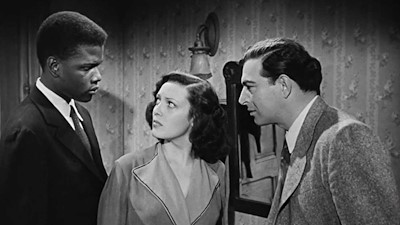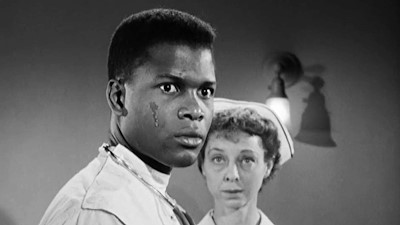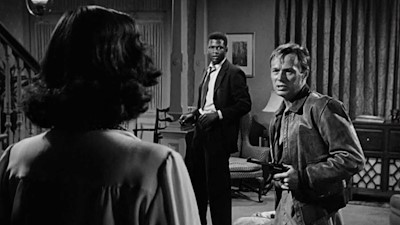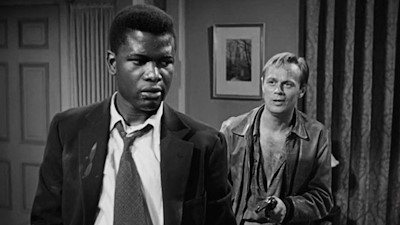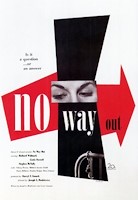No Way Out
Joseph L. Mankiewicz, USA, 1950o
The Biddle brothers, shot while robbing a gas station, are taken to the prison ward of the County Hospital; Ray Biddle, a rabid racist, wants no treatment from black resident Dr. Luther Brooks. When his brother John dies while Luther tries to save him, Ray is certain it's murder and becomes obsessed with vengeance. But there are black racists around too, and the situation slides rapidly toward violence.
Despite his contractual fourth billing (not uncommon considering the white-only attitude of Hollywood at the time), Poitier was undoubtedly the main character of the film and walked off with most of the critical accolades. His dignified, groundbreaking portrayal shattered the stereotypical portrayal of black men as cowering, obedient caricatures; fortuitously, the film's release coincided with the birth of the civil rights movement as the NAACP was first rising to prominence. The film itself performed well if not spectacularly, perhaps due in no small part to its relatively scarce venues in the South and censorship difficulties throughout the country, including a temporary ban in Chicago following a spate of real-life race riots. Controversy continued to dog the film for years as HUAC's anti-Communist investigations branded the film itself anti-American and its participants - particularly Poitier - singled out as offenders
Nathaniel ThompsonGalleryo
